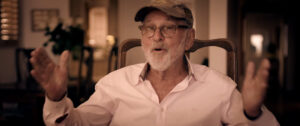
I was saddened to hear of the death of Norman Jewison this week at age 97.
Last year, I read Jewison’s autobiography, “The Terrible Business Has Been Good To Me,” which is full of great stories about movies he helmed and people he worked with, including such leading men as James Caan in “Rollerball,” Al Pacino in “…And Justice For All,” and Denzel Washington in “The Hurricane.”
But he also helped actresses such as Cher and Olympia Dukakis give Oscar-winning performances in “Moonstruck.” Jewison was the one who gave Lee Grant her big screen career back, casting her in “In The Heat Of The Night” after a dozen years in which she couldn’t find movie work because she’d been blacklisted.
As if that wasn’t an impressive enough filmography, Jewison was also responsible for a trio of all-time titles — “The Cincinnati Kid,” “The Russians Are Coming, The Russians Are Coming,” and “In The Heat Of The Night” — which he made in consecutive years (1965-7). And that came after many years as a TV director, calling the shots for specials starring Judy Garland, Danny Kaye, and Harry Belafonte.
In “Fiddler’s Journey To The Big Screen” (which I named best documentary of 2022), director Daniel Raim uses lots of footage of Jewison explaining how he executed his vision in making the 1971 movie version of “Fiddler On The Roof.” One of the highlights is Jewison recalling how he told studio executives that, despite his name, he was not Jewish, so why would they want him overseeing a movie about the travails of a religious Jewish man and his family in Russia in the early 20th century?
It’s a good thing they did, because the result was magical.
